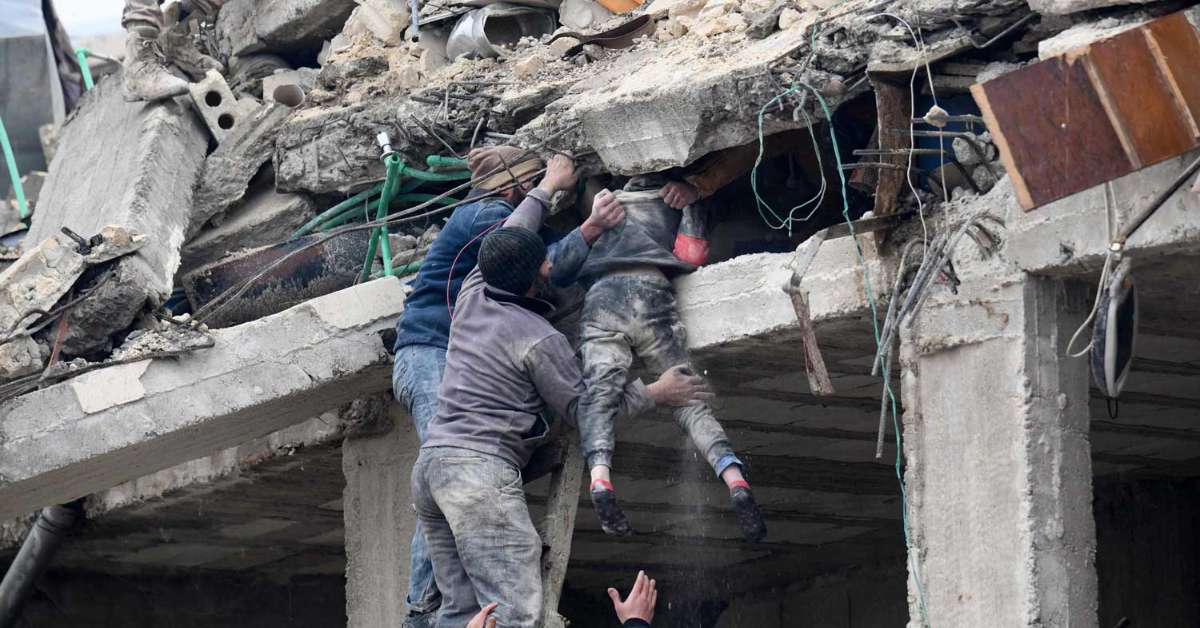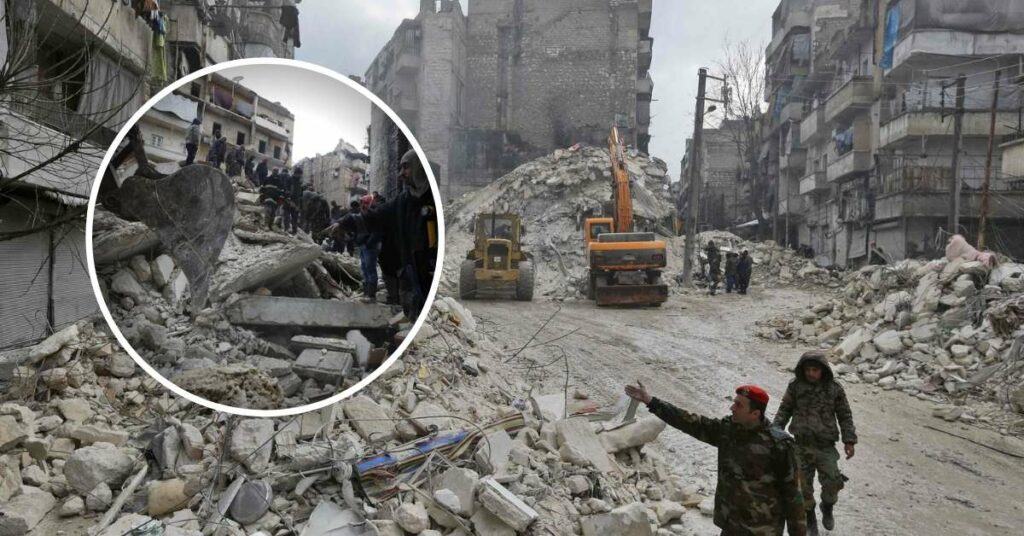Aleppo, a war-torn city in Syria, was hit hard by the catastrophic earthquake that also ravaged southern Turkey. There have been reports of around 1,600 deaths in northern Syria as a result of the earthquake.
Many structures were damaged or destroyed, and individuals were feared to be buried under the debris, according to emergency rescue personnel. Millions of people have fled to the area because of the civil war.
The government, Kurdish-led forces, and other rebel factions are all vying for control of northern Syria. They haven’t resolved their conflict yet.
Many people in the region were already living in dire conditions before the earthquake hit, what with the cold, the decaying infrastructure, and the cholera outbreak.
When a peaceful revolt against President Bashar al-Assad in 2011 became violent, most of Aleppo was destroyed.
Despite efforts to reconstruct the city, which was Syria’s pre-war commercial hub, the city’s infrastructure is in disrepair, buildings are frequently demolished, and power outages are commonplace.
You are welcome to check out our previous coverage of the earthquakes that occurred some time ago:
- Western New York Hit by the Strongest Earthquake in 40 Years.
- A Big Earthquake Hits Turkey And Syria, Killing Dozens And Trapping Many.
More than 1,600 people have been killed in the region since the earthquake, according to estimates from the Syrian government and the White Helmets rescue organization, which operates in areas under rebel control.
A video posted on social media and confirmed by the BBC showed people running for safety as a building in Aleppo fell down.
The 7.8-magnitude quake hit the Turkish city of Gaziantep at 04:17 local time (01:17 GMT), at a depth of 17.9 kilometers (11 miles). Twelve hours later, another earthquake, this one 80 miles (130 kilometers) to the north, struck at a similar depth.

Reuters reports that some people in Aleppo have nowhere to go because their homes have been damaged or destroyed or because they are terrified of more earthquakes.
The White Helmets have reported that the area of northwest Syria is a “disaster area” and that families are still buried under the debris.
A resident in Jandairis told the AFP news agency that the quake had killed 12 of his relatives. Another reported that some of his family members were buried under the debris.
He said –
“We hear their voices, they’re still alive, but there’s no way to get them out.”
“There’s no one to rescue them. There’s no machinery.”
All of the country’s emergency services, including the army and student volunteers, have been made available in areas under government control. BBC Monitoring’s Middle East expert Hesham Shawish, however, claims that this is insufficient to address the level of destruction.
International Rescue Committee, a nonprofit with over a thousand people on the ground in opposition-held areas of Syria, reported that it was already coping with the first cholera outbreak in the region in a decade and preparing for approaching snowstorms when the earthquake struck.
Rescue efforts were hampered by the freezing temperatures and heavy rain. Middle East advocacy director Mark Kaye called it a “crisis within a crisis within a crisis,” adding that large portions of the region were inaccessible due to damaged communication networks.
International aid could also take some time to arrive. Only one tiny bridge on the Turkish border allows supplies to reach opposition-held territories in northwest Syria, making it one of the most inaccessible parts of the country.
It has been reported that some residents in rural areas of Syria have been forced to relocate as many as 20 times owing to the ongoing civil war.
The war has claimed the lives of hundreds of thousands of people, both civilians and combatants, and the humanitarian crisis it has sparked has been exacerbated in recent years by a global economic collapse.
Whole neighborhoods and essential infrastructure, including hospitals, were already in ruins across Syria as a result of the fighting when the earthquake occurred.
The government has asked for help from around the world, especially from countries that are part of the United Nations, the International Committee of the Red Cross, and other humanitarian groups.
But it has allegedly denied reports that it has sought Israel’s assistance. There are no diplomatic ties between the two countries because they are still formally at war.
The United Arab Emirates, Kuwait, and Qatar are just a few of the many countries that have pledged assistance. The United Nations claims to have assessment and aid personnel already on the ground.
Lyse Doucet, the BBC’s chief international correspondent, has said that Bashar al-Assad, the president of Syria, may be forced to accept help from the West and other countries that he has often criticized for helping his enemies.
Russia has also said it will help, even though it already has troops in Syria because it is on the side of the government in the civil war.




